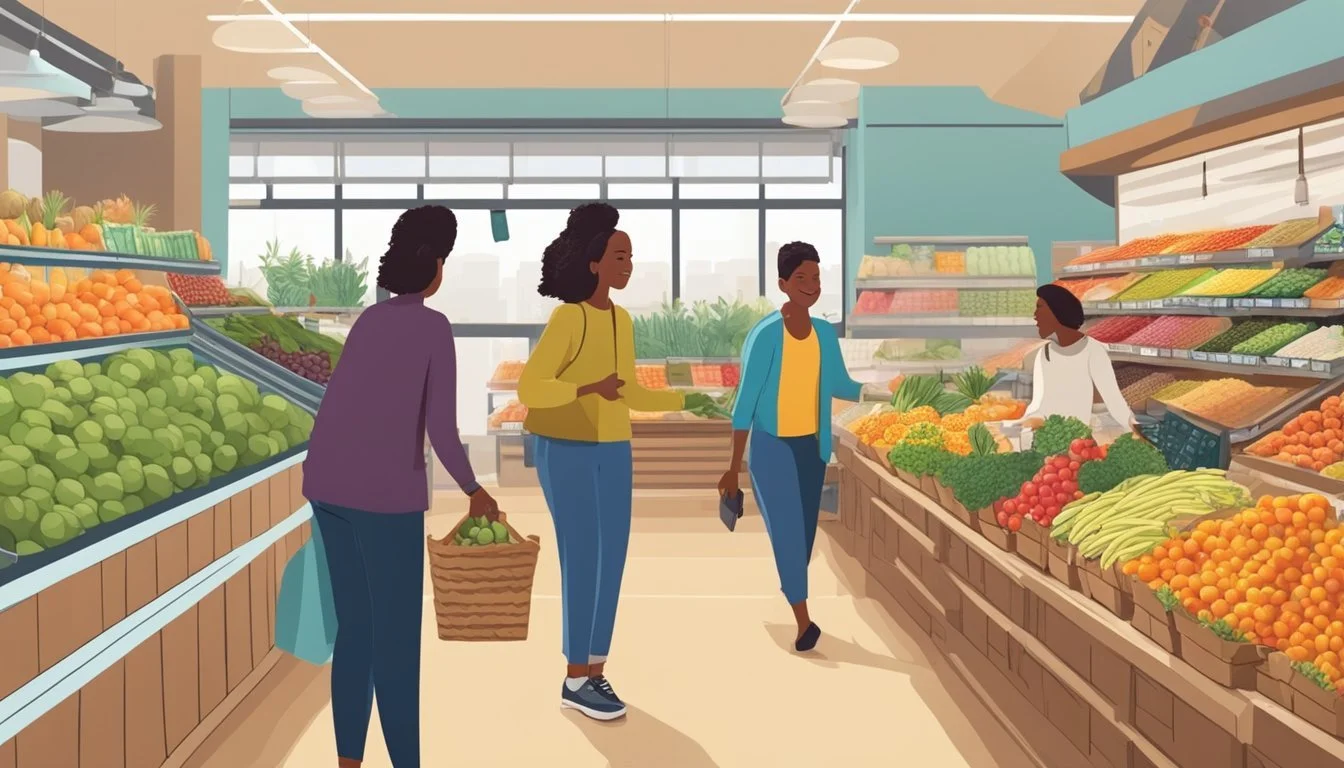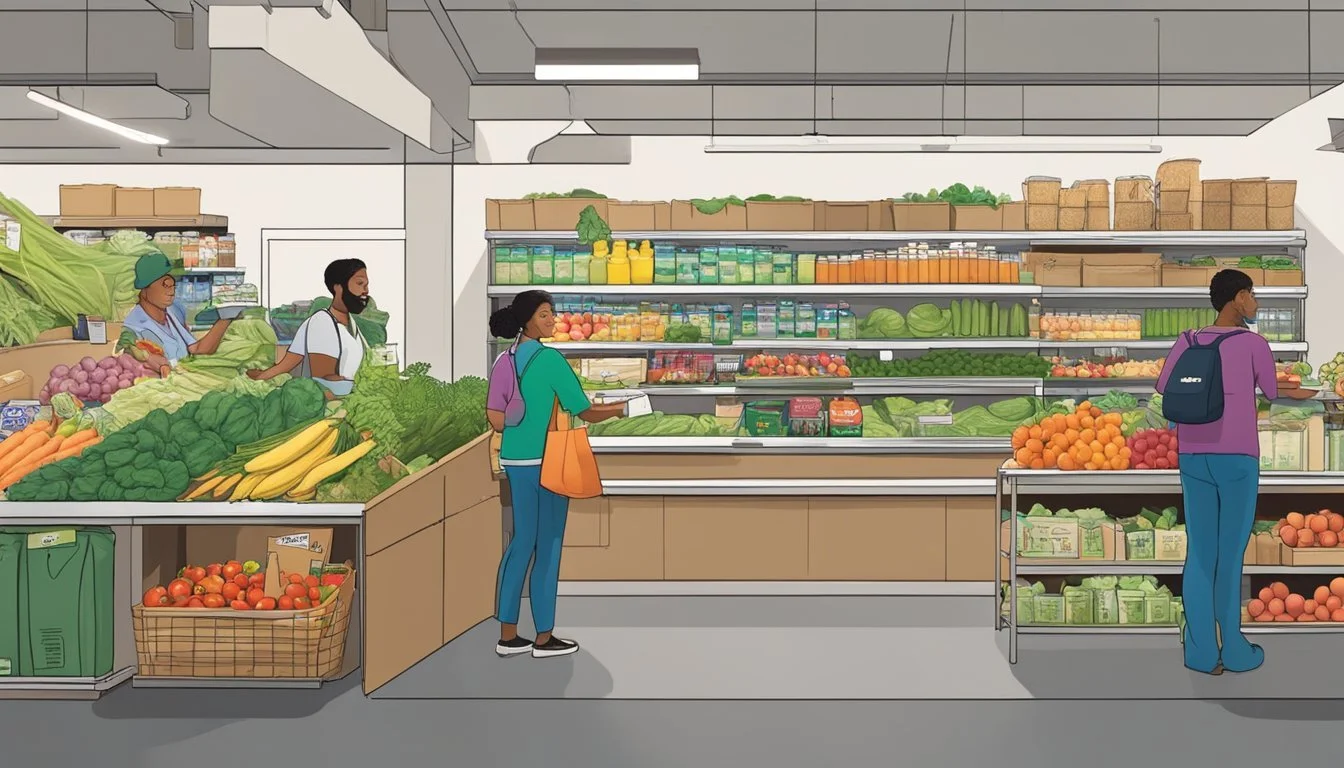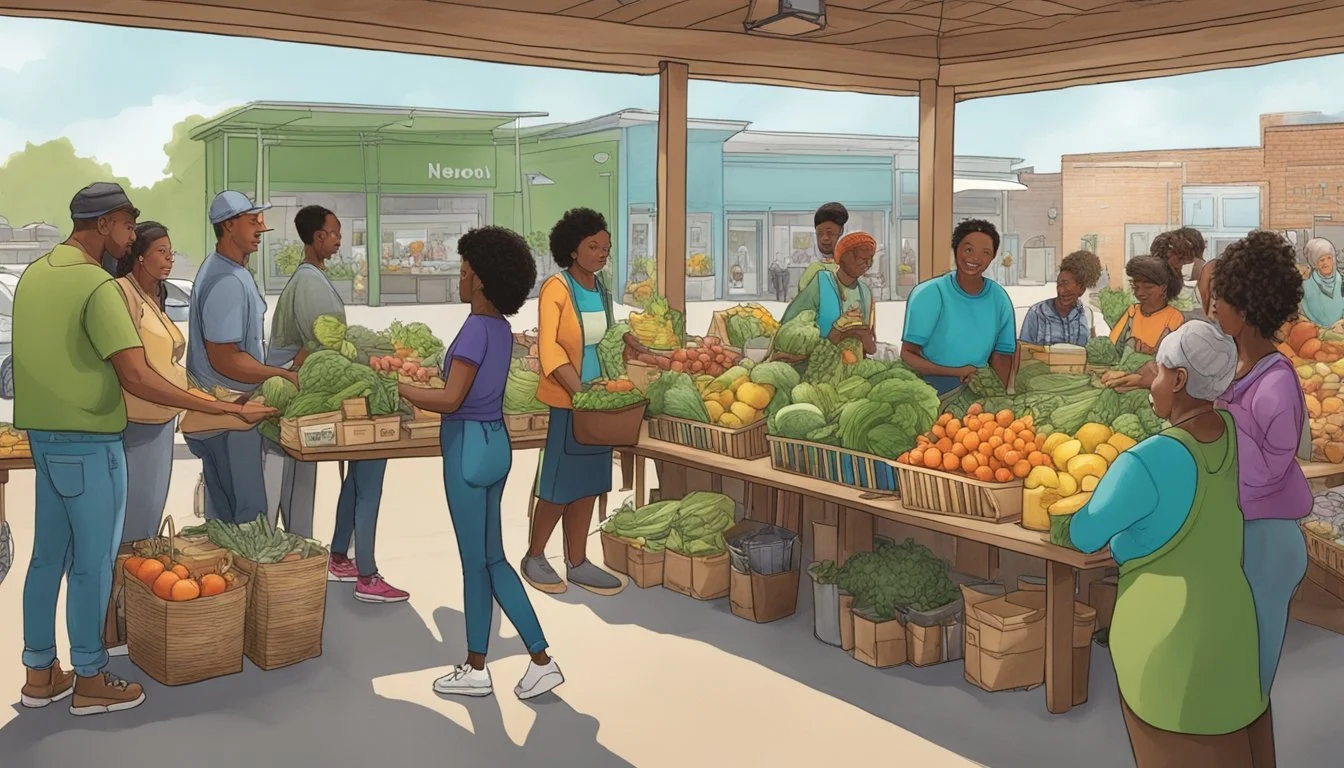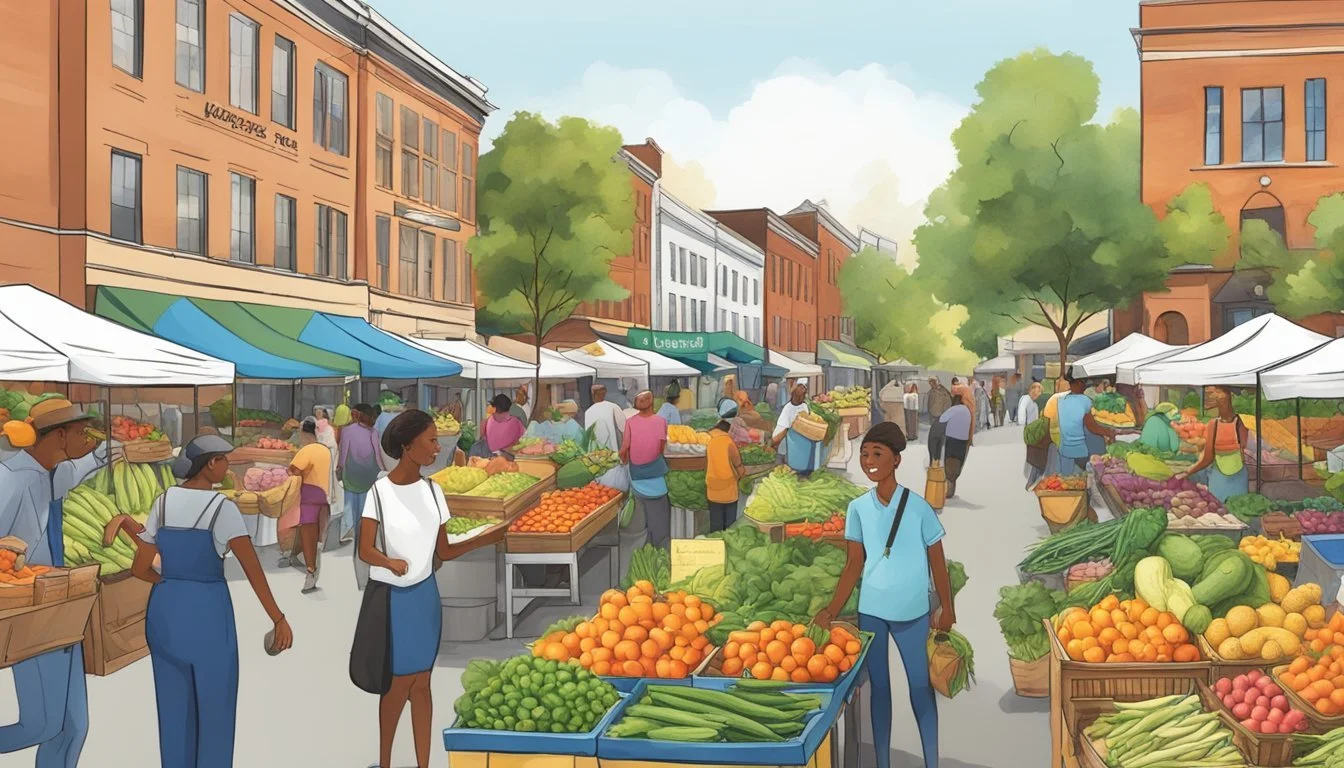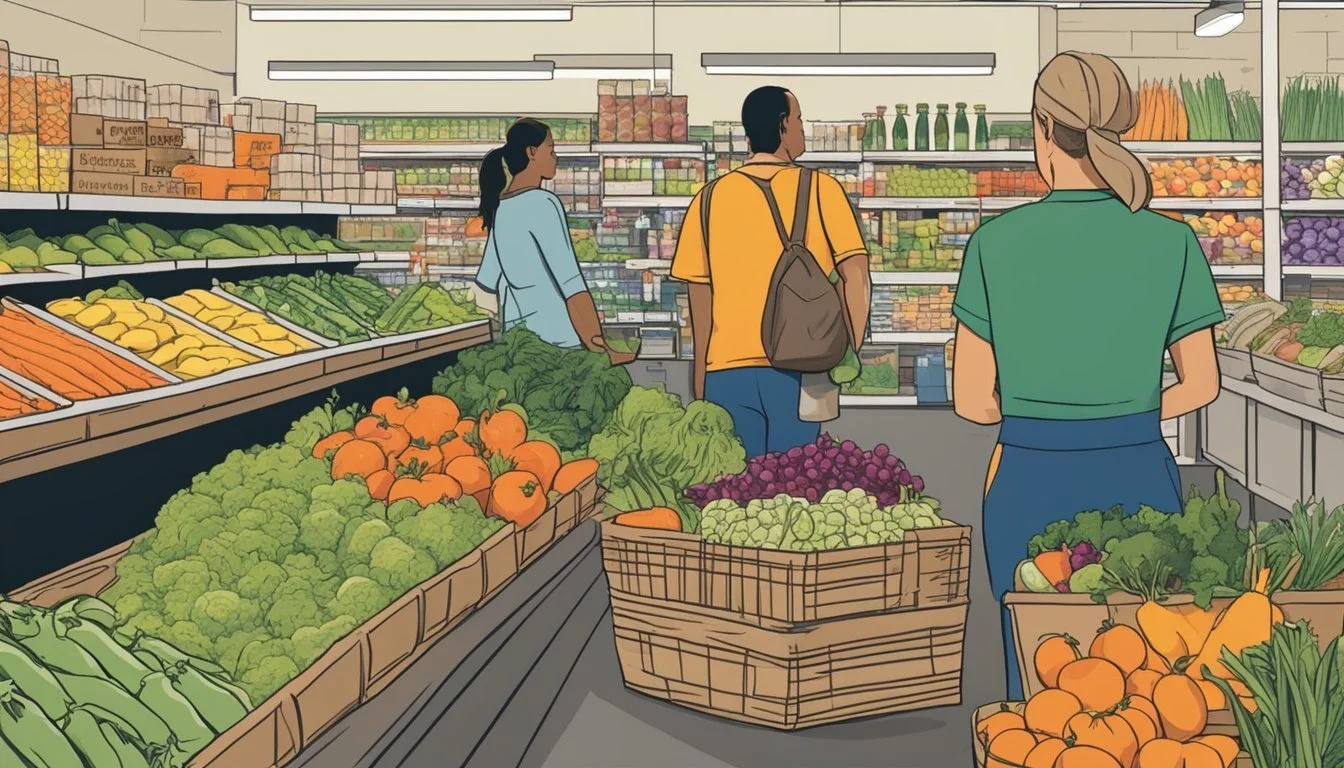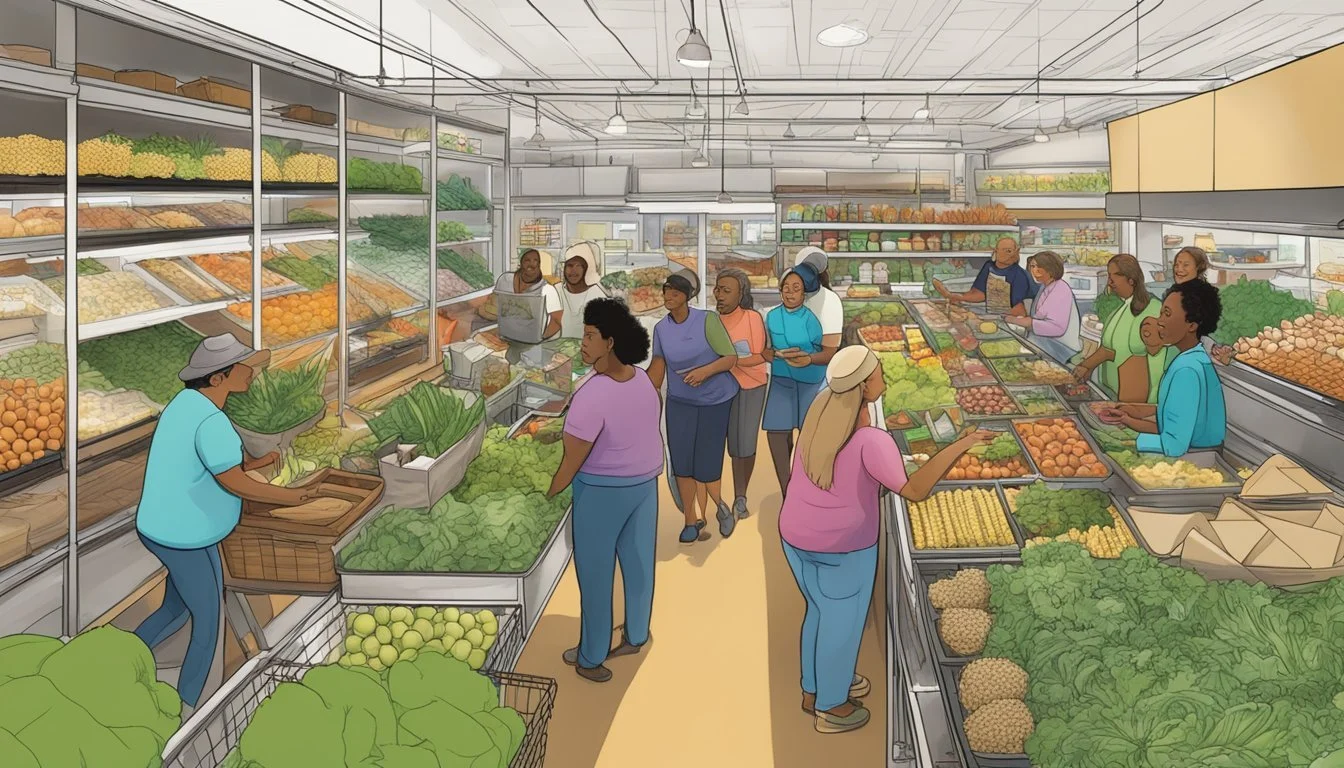Guide to Food Co-Ops in Newport News, VA
Your Local Shopping Solution
Newport News, Virginia, a city steeped in history and community, offers a variety of food co-ops and groceries that cater to those seeking organic, locally-sourced, and natural products. These community-centered establishments not only provide access to healthy food options but also support local agriculture and sustainable practices. Food co-ops in the area, such as the Organic Food Depot, are known for their wide selection of organic and natural foods, offering both in-store shopping and online order options for the convenience of customers.
The sense of community is further enriched as local food pantries, like THRIVE Peninsula, extend their services without income requirements, allowing residents to receive food assistance with dignity and ease. They facilitate curbside pickup, exemplifying the community's commitment to caring for one another. Other initiatives, like the RealFood Williamsburg Community Co-op, emphasize education on sustainable agriculture and provide opportunities for community members to engage with the food they consume, strengthening the local food system.
Moreover, collaborative efforts between food programs and religious institutions showcase the city's supportive network aiming to address food insecurity. Community Feeding Programs and operations like the FIVE LOAVES FOOD PANTRY work in unison to serve the community, with special care for the elderly and those facing emergencies, ensuring that essential nutritional needs are met across different demographics in Newport News.
What Are Food Co-Ops?
Food co-ops are community-centered organizations where members buy groceries and produce together. They prioritize democratic member control and often focus on providing organic and local food options.
History of Co-Ops
The cooperative movement has a storied history that traces back to the first modern cooperative founded in Rochdale, England, in 1844. Food cooperatives emerged as part of this broader movement, growing in popularity as a way for communities to access quality food directly from producers, thereby fostering a closer connection between consumers and their food sources.
Philosophy and Principles
Food co-ops typically operate on a member-owned and member-run model. This means they adhere to cooperative principles, such as voluntary and open membership and democratic member control. Food co-ops are designed to serve the interests of their members, and profits are often reinvested into the co-op or returned to the members rather than external shareholders.
Member Control and Benefits
Members of a food co-op typically elect a board of directors from within their ranks to ensure that the co-op remains attuned to the needs of its community. Members benefit not just from access to healthy food, but also from the opportunity to vote on important decisions and potentially receive dividends based on the cooperative's profitability.
Community Impact
By emphasizing local and organic products, food co-ops support local agriculture and contribute to the local economy. They often become a hub for community activities, educational initiatives about food and sustainability, and a forum for like-minded individuals to discuss and act on community-related issues.
The Benefits of Joining a Food Co-Op
Joining a food co-op in Newport News, VA, provides a variety of advantages that can benefit one's health, wallet, and community. From access to fresh, local produce to sharing in the cooperative's savings and values, members are part of a sustainable and community-oriented way to shop.
Access to High-Quality Food
Members of a food co-op have the privilege of accessing high-quality, often organic and healthy food options. Food co-ops are renowned for offering a range of affordable fruits, vegetables, and other nutritious foods, which are sourced with a focus on quality and freshness.
Supporting Local Farmers and Economy
Food co-ops often prioritize sourcing from local farmers, directly contributing to the local economy and supporting sustainable agriculture. This not only helps to sustain the local farming community but also ensures that shoppers are receiving fresh, local food that hasn't traveled long distances.
Environmentally Responsible Shopping
Shoppers at food co-ops participate in environmentally responsible purchasing. Many co-ops stock organic products and champion practices that reduce carbon footprint, supporting a system of sustainable food production and distribution.
Membership Perks and Savings
Joining a food co-op often comes with financial benefits. Members can save money through:
Discounts: Reduced prices on products as co-ops pass on savings from bulk orders.
Patronage Refunds: Possible refunds that are a portion of purchases during a certain period.
Members may also have a voice in co-op operations, embodying democratic ownership and control.
How to Join a Food Co-op in Newport News
Joining a food co-op in Newport News involves understanding the different membership models and completing a straightforward signup process. Potential members should be prepared to participate in a community that values product quality, consumer education, and local sourcing.
Understanding Membership Models
Membership models vary among food co-ops. They commonly offer options for both working and non-working memberships. Working memberships may require members to contribute a certain number of hours per week and often include annual dues, which can range from $24 to $48, in exchange for discounts on purchases ranging from 15 to 20 percent. For those who prefer not to work, non-working memberships involve a capital investment and potentially a monthly fee depending on the co-op's structure. Members often have a voice in the co-op's operations and may even possess voting rights.
Membership Signup Process
To become a member of a food co-op in Newport News:
Visit the Food Co-op: Prospective members must visit the store in person to begin the registration process.
Address: Locate the nearest food co-op's address through their website or a local directory.
Customer Service: Go to the Customer Service Desk upon arrival to express interest in membership.
Investment: Be prepared to make a refundable Capital Investment, generally around $100, plus a small join fee.
Monthly Fees: Some co-ops may also have a monthly fee system.
Contact Information: Provide contact details such as email or phone number for future communications.
Members may need to complete additional forms or provide more detailed information during their visit. The signup process typically ends with receiving a membership card and a welcome packet. It is also advisable to contact the co-op through their 'Contact Us' page or by email to get the most current information regarding membership before visiting.
Exploring Local Food Co-Ops
Food cooperatives offer a wealth of benefits, from fostering local economies to providing healthful, organic options. In the Newport News area, residents have the opportunity to engage with co-ops that pledge to uphold the value of local, sustainable agriculture and community wellbeing.
RealFood Williamsburg Community Co-Op
Located just a short distance from Newport News, in Williamsburg, RealFood Co-op is more than just a grocery store; it's a hub for locally sourced and organically grown produce and goods. Members of the community can partake in the coop's thriving selection of pasture-raised meats, organic cheeses, and fresh vegetables. RealFood Williamsburg fosters a direct relationship between consumers and local farmers, ensuring that each purchase supports the surrounding community.
Location: Williamsburg, VA (close to Newport News)
Offerings: A selection of local vegetables, meat, eggs, and dairy products
Focus: Organic, GMO-free, and pasture-raised goods
Other Nearby Options
For those willing to venture a little further, the cities of Norfolk and Suffolk also host co-ops that enhance the local food scene. These establishments prioritize high-quality, nutrient-rich products along with a commitment to consumer education and community support. Each coop, while unique in its own offerings, shares the overarching mission of food co-ops as described by LocalHarvest: to bring the best value to their members and uphold the highest standards of product quality.
Norfolk, VA:
Numerous options for those seeking organic, sustainable groceries
LocalHarvest affiliated locations offer a variety of goods
Suffolk, VA:
Smaller, community-oriented food co-ops
Focus on local harvest and supporting regional farmers
These local co-ops not only provide healthful food choices but also galvanize local economies, strengthening the bond between producers and consumers.
Supporting Local Agriculture
Supporting local agriculture in Newport News, VA, involves the robust network of family-owned farms and the co-ops that distribute their produce. The community thrives on a system that sustains local production and brings fresh, locally grown food to families year-round.
From Farm to Co-op
Farmers in Newport News and the surrounding Hampton Roads area have established a strong cooperative model for the distribution of their products. This system entails a partnership between farms and food co-ops like Coastal Farms and RealFood Williamsburg Community Cooperative. These entities work together to streamline the production and distribution process, ensuring that consumers have access to locally grown and naturally grown food. This not only supports the local economy but also fosters closer connections between producers and consumers.
Key Benefits:
Strengthened local economy through the support of family farms
Freshness and quality of produce due to shortened transit times
Seasonal Produce Availability
Local farms in Newport News offer a variety of seasonal produce, aligning with nature’s calendar to ensure peak freshness and optimal taste. The availability of such produce directly reflects the cycles of production:
Spring: Fresh greens, peas, and berries start to emerge.
Summer: A wealth of tomatoes, corn, and melons dominate the scene.
Fall: Root vegetables and squash varieties become prevalent.
Winter: Although growth slows, some greens and cold-hardy items are still available.
Co-ops serve as a nexus for this seasonally changing bounty, enabling consumers to plan their diets around what is locally harvestable, thus reinforcing a sustainable food system.
Shopping at a Food Co-op
When shopping at a food co-op in Newport News, VA, shoppers benefit from a communal retail experience offering bulk purchases, a wide selection of organic and natural foods, and access to specialty groceries, including dairy and meat products.
Bulk Purchase Benefits
Food co-ops excel in providing customers with the opportunity to buy products in bulk. This is particularly advantageous for those aiming to reduce waste and save on per-unit costs. Shoppers can purchase essentials like grains, nuts, and spices, typically in quantities tailored to their individual needs. Buying in bulk not only helps in maintaining a well-stocked pantry but also contributes to less packaging waste, aligning with eco-friendly practices.
Savings: Bulk purchases often result in lower prices.
Customization: Shoppers can buy the exact amounts they need, which helps to minimize food wastage.
Eco-Friendly: Less packaging is better for the environment.
Organic and Natural Food Selection
Patrons of Newport News food co-ops have access to an impressive variety of organic and natural foods. These selections cater to consumers seeking products that are not only great-tasting but also healthier and more sustainable. The offerings often include locally sourced produce, certified organic dairy products, and meats from animals that have been pasture-raised and grass-fed. These co-ops prioritize the procurement of groceries that support both personal well-being and the well-being of the planet.
Health Benefits: Organic and natural foods are grown without harmful pesticides and chemicals.
Support Local: Food co-ops frequently source from local producers, bolstering the community's economy.
Specialty Grocery Items
At a food co-op, shoppers will find an array of specialty grocery items not commonly found in conventional grocery stores. These can range from artisanal cheeses to organic personal care products, and gourmet preparations that cater to specific dietary needs. The diverse selection ensures that consumers with particular preferences for dairy and meat products, among others, can find high-quality, specialty items that meet their dietary guidelines and personal standards.
Diverse Range: Unique and hard-to-find grocery items are a staple.
Quality Standards: Specialty items often come from trusted, vetted sources who maintain high-quality production standards.
Community Engagement and Education
In Newport News, Virginia, food cooperatives play a pivotal role in fostering community engagement through various educational ventures. These co-ops prioritize learning opportunities that encompass sustainable agricultural practices and food preparation techniques.
Workshops and Events
Food co-ops in Newport News often host workshops and events designed to educate community members on a multitude of topics. These events may include:
Sustainable Gardening: Local experts share their knowledge on how to start and maintain a garden, emphasizing the importance of sustainable practices.
Cooking Demonstrations: Talented chefs and food enthusiasts offer classes on how to prepare nutritious meals using locally sourced ingredients.
These services aim to enhance participants' skills in sustainable food production and preparation, furthering the co-op's goal of informed community involvement.
Promoting Sustainable Practices
The goal of promoting sustainable practices is central to the ethos of Newport News' food co-ops. They strive to instigate change through:
Marketing Strategies: Co-ops use ethical marketing to highlight the benefits of locally-sourced, environmentally responsible produce.
Seed Sharing: By offering seeds and knowledge on how to plant and care for them, these co-ops support aspiring gardeners in growing their own food sustainably.
By engaging the community through educational initiatives, Newport News' food co-ops are not just food providers; they are cultivators of a lifestyle that values the environment, personal health, and community well-being.
Management and Governance
Food co-ops in Newport News, Virginia are democratically managed by their members, ensuring that decisions reflect the community's needs. The governance structure typically includes a board of directors and a general manager, each with distinct responsibilities.
Operating a Food Co-Op
At its core, the operation of a food co-op involves member control, with policies and decisions influenced by those who use its services. Members elect a board of directors who oversee the co-op’s long-term health and strategic direction. Day-to-day operations are managed by a general manager, who reports to the board. This management structure ensures that the co-op remains aligned with its mission while operating efficiently. Profits are either reinvested in the co-op or distributed back to the members in accordance with their contribution to the cooperative, underlining the principle of member benefit.
Role of the Board of Directors
The board of directors plays a crucial role in the governance of a food co-op. They are responsible for:
Setting the co-op’s strategic direction: goals and objectives are outlined to ensure the co-op serves its members effectively.
Ensuring the co-op adheres to sound ethical and legal practices, maintaining transparency and trust.
Appointing and overseeing a qualified general manager to handle operational specifics.
Taking the lead on profit distribution decisions, which can include member dividends, reinvestment, or community initiatives.
Board members are elected from the co-op’s membership, reinforcing the democratic ethos that guides these entities. They make key decisions not based on maximizing profits for distant shareholders, but on what will benefit their local member-owners and the wider community.
The Future of Food Cooperatives
The evolution of food cooperatives is characterized by the adoption of innovative distribution methods and the strengthening of regional food systems that prioritize sustainability and community engagement.
Innovation in Food Distribution
Food cooperatives are increasingly harnessing technology to streamline the distribution of food. Entities such as the National Cooperative Business Association (NCBA) advocate for modernizing logistics to meet the growing demand for locally sourced, sustainable food options. The integration of online platforms enables cooperatives to give customers greater access to a range of products while improving inventory management. Emerging software solutions also support food co-ops in better forecasting demand, which reduces waste and ensures a more consistent supply of fresh goods.
For example, a cooperative in Newport News, VA, might use an online ordering system to provide seamless pick-up and delivery services. Such technological advancements not only enhance overall customer satisfaction but also contribute to a leaner and more efficient supply chain.
Building Stronger Food Networks
The Neighboring Food Co-op Association (NFCA) demonstrates the importance of building stronger food networks that connect various cooperatives, ensuring a resilient community-facing food system. By focusing on partnerships, food cooperatives contribute to a more robust local economy and provide a delineated support system for farmers and producers.
Partnerships and Collaboration: Co-ops often join forces to share resources, knowledge, and logistics to serve the community better. For instance, cooperative alliances can negotiate better prices for bulk purchases, share storage facilities, or co-host community events focused on food education and sustainability.
Community Engagement: Food cooperatives are deeply rooted in the communities they serve, often engaging in initiatives that go beyond food distribution. This may include community gardening projects, educational workshops on nutrition and food sovereignty, and programs that address food insecurity at the local level.
Through such efforts, food cooperatives are positioning themselves as central figures in future food systems, redefining how communities interact with their food sources, and promoting the values of cooperation and mutual support.

